Do you find yourself discouraged by the amount of plastic in your cart whenever you go to the grocery store? You’re not the only one.
In January, a group of 20 Winnipegers gathered in the Eco-Centre boardroom to watch the CBC Marketplace Documentary: Why buying plastic free groceries is so hard. We enjoyed a plastic free lunch and shared ideas with each other about how to reduce plastic waste in our own lives. During the collaborative discussion, the four main concerns we identified regarding excessive plastic waste were:
- Plastic is made from non-renewable fossil fuels.
- What will our future world look like if we continue to pollute at this rate?
- What is the health impact of all the micro-plastics that are now entering our bodies?
- We’re not involved in (and often unaware of) the entire life-cycle of the plastic waste.
Plastic waste eventually breaks down into micro-plastics, but never fully biodegrades. The micro-plastic waste in your shopping cart will be around forever. There’s so much plastic waste that recycling our way out of the mess is not an option either. There’s no longer a market for all the plastic. Even when it is recyclable, it’s important to remember that resources are still going into producing the plastic and recycling it into something else. Reducing is always better than recycling.
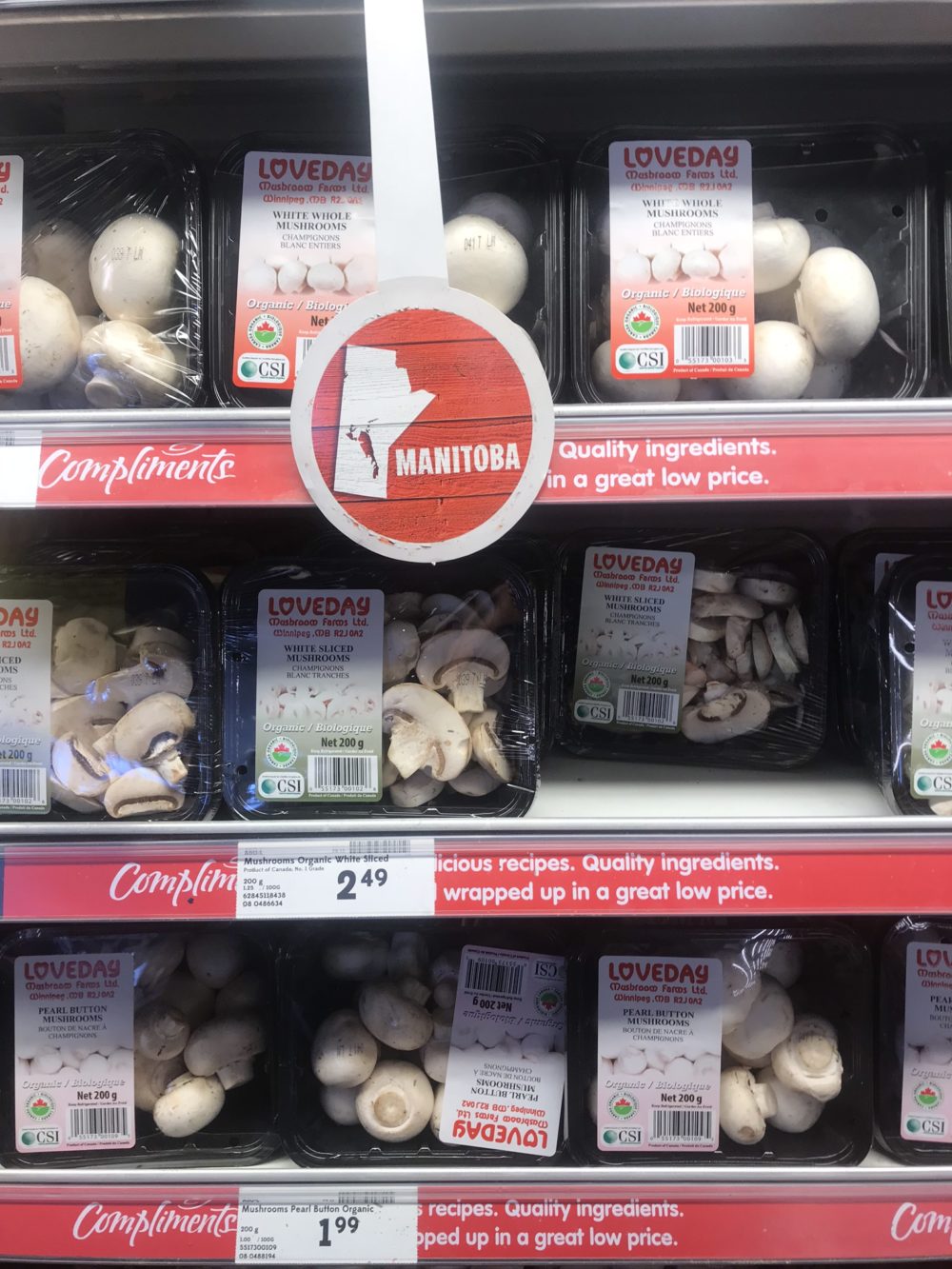
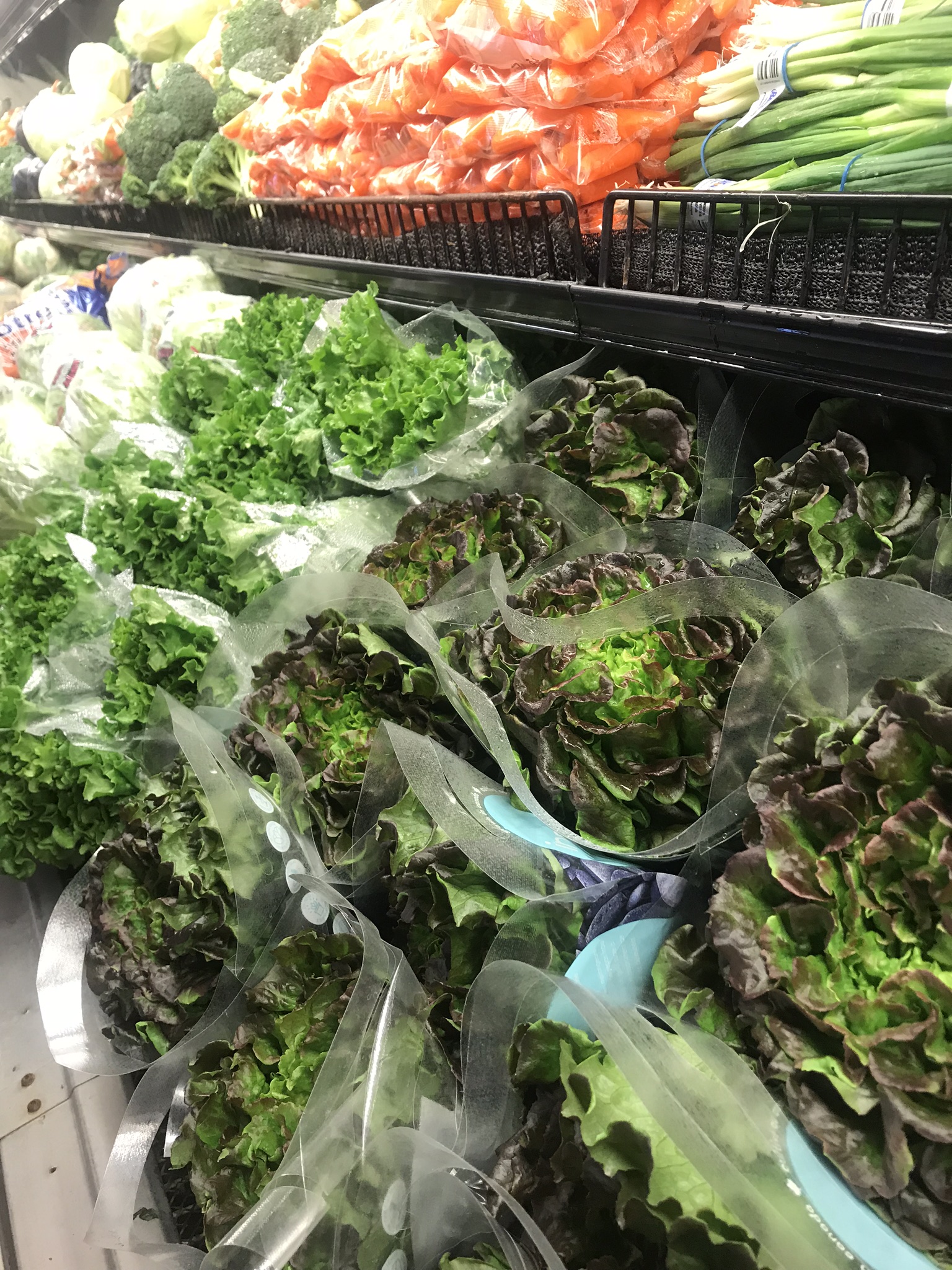
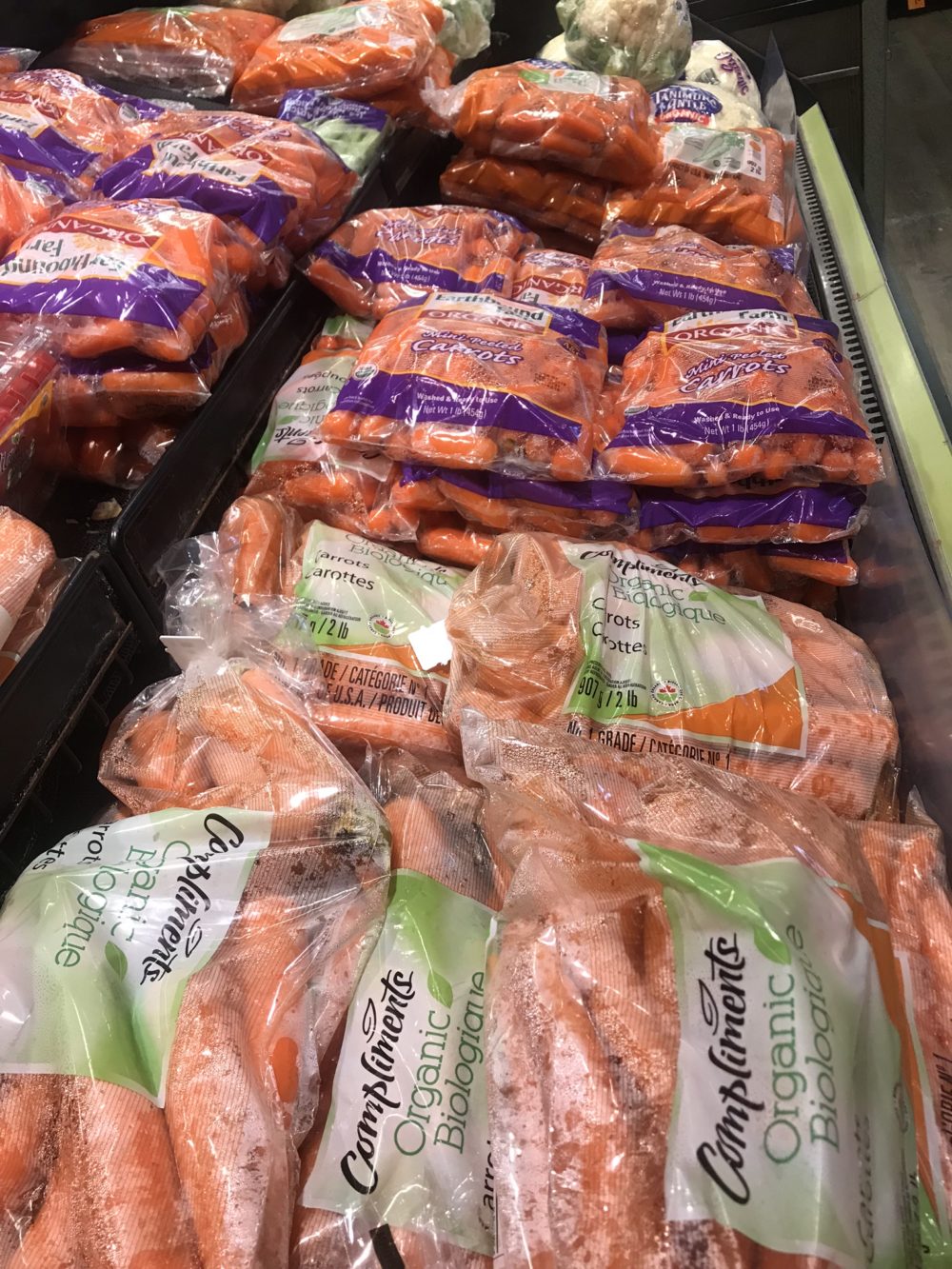
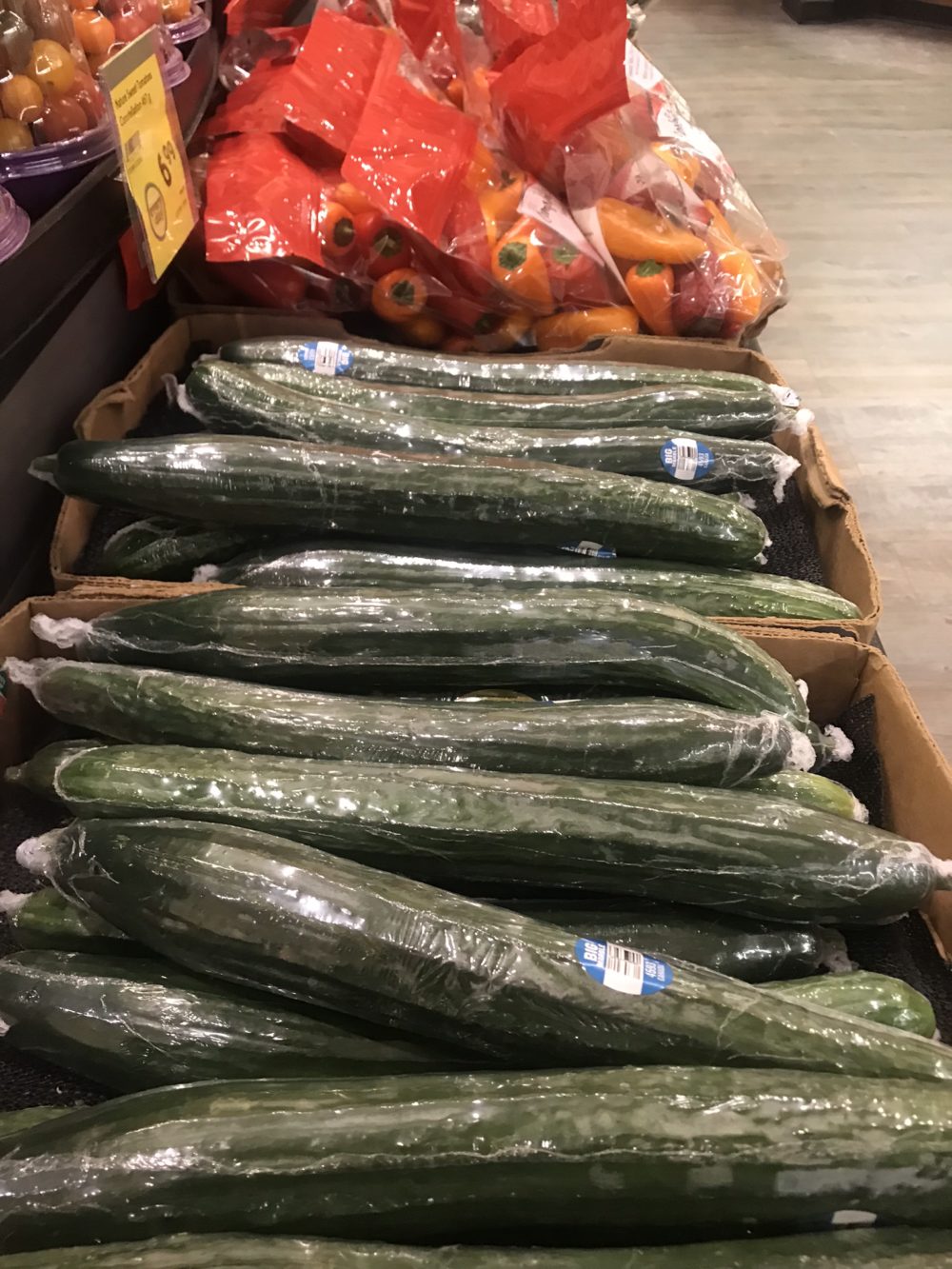
If your bathtub is overflowing, do you grab a mop to wipe it up or turn off the tap?
Are you thinking “Yes, yes. I know plastic waste is bad. But it’s also impossible to avoid!” Policy changes (both legislative and in grocery stores) are going to be important as we transition to plastic free shopping. But in the meantime, don’t be discouraged. The group of go-getters who gathered for our plastic free lunch came up with some suggestions for you to try as you work towards reducing plastic waste while grocery shopping:
1) Always bring your own produce bags and bulk bags (or jars) to the grocery store
- Don’t forget, bananas, oranges, and many other fruits come in their own packaging. AKA peel! If you don’t have enough produce bags, skip the bag altogether.
- See if there are any bulk options at your local grocery store and get your dry ingredients in this section. You can fill your own cloth bulk bags or use your own jar/container. Check with your local store to see if they can tare your jar to ensure you’re not paying extra for the weight of the container (Bulk Barn is great at this).
2) Eat local, and eat seasonally
- Eating locally and seasonally means you can get your fruits and vegetables directly from the farm. Not only are you avoiding the unnecessary packaging that comes with purchasing the food from a grocery store, but you’re also helping the environment by reducing the emissions coming from food transport.
- Bring your own bag to your local farmers’ market to pick up fruits and vegetables directly from the farmer. Alternatively, sign up for a CSA and get a portion of vegetables every week!
- Can, dehydrate, and preserve your summer foods to help ensure you have plastic free options throughout the winter as well.
3) Support businesses that are making efforts to reduce plastic waste
- Tell cashiers and management you appreciate and have noticed their efforts.
4) Talk to your local grocery store about your frustration with the excessive amount of plastic waste they are producing
- Tell them (both in-person to management and via a letter to head offices) why reducing plastic is important.

Hosting an event and wondering where we got ingredients for our plastic free lunch? We brought our own container to local Winnipeg shops and filled them with cookie ingredients (Bulk Barn), quinoa for salad (Bulk Barn), sandwich meat (DeLuca’s), cheese (The Cheesemongers Fromagerie), bread (Pennyloaf Bakery), veggies (Organic Planet), dips (Blady Middle Eastern), and coffee (Bulk Barn). Despite our efforts, there was still plastic waste from the sheets which DeLuca’s used to weigh the meat, the plastic seal that wrapped our jar of mayonnaise, and the stickers that were on all the vegetables.
Wondering where you can bring your own container to shop plastic free? Click here or here for a map of Manitoba’s top BYOC locations!
ACTIVITY TIME: Most people have two or three waste bins in their kitchens (garbage, recycling, compost). Try adding one specifically for plastic waste. It’s extremely eye opening to see just how much of the waste in your trash is plastic.

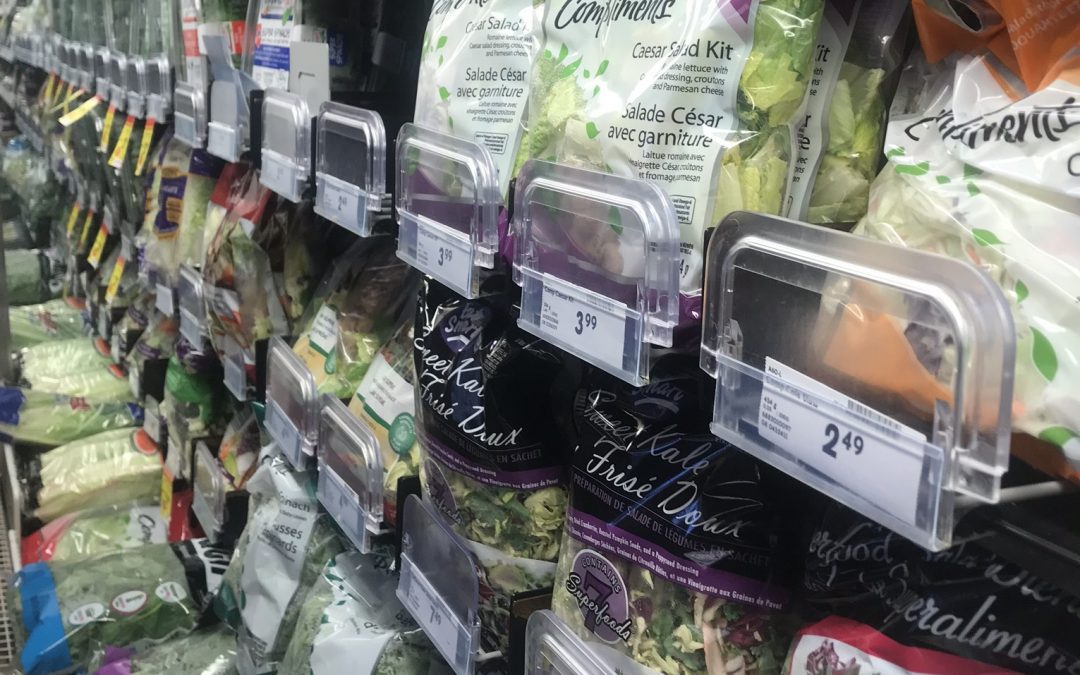


I really appreciate this newsletter. I have been focusing on reducing the garbage I create. Since Bulk Barn began accepting customers containers I have been able to greatly reduce the amount of plastic packaging I throw out. I now use a bread bag to contain my garbage. Surprisingly my garbage is still primarily plastics even when trying to avoid it. It takes awhile to fill our garbage bin so it does not go out often. Ditto for the blue bin.
I’m rather surprised none of our lovely local bakeries have made an attempt to encourage people to bring their own bag. Has there been any campaign ask Tall Grass, Stellas, Sleepy Owl, etc., to encourage customers to bring their own bag? Are there any Etsy entrepreneurs out there who see a potential market here to sell cloth bread bags?